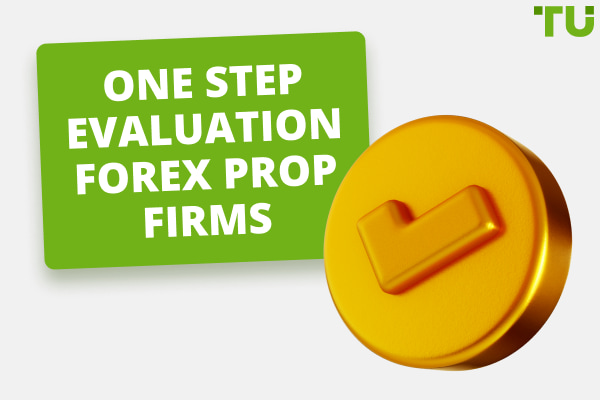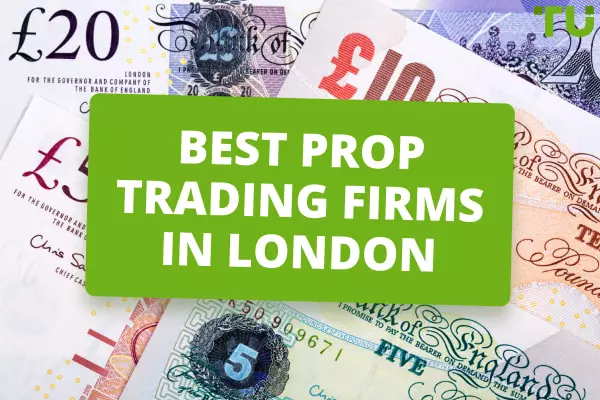How Prop Traders Generate Income?
Prop traders make money through a variety of strategies and tactics, with the goal of generating profits from the financial markets. Simply speaking, they make money by attracting trading capital from the prop company and receive a portion of the income from trading performance.
Prop trading mainly involves the trading of financial securities like stocks, bonds, commodities, currencies, or other instruments. They use client’s funds to earn from capitalizing price fluctuations, instead of earning a small fee for trading on behalf of clients.
Prop traders use multiple trading strategies to include two primary ways, profit splits between prop traders and prop trading firms, and salary based compensation.
In this article, you will get a detailed understanding on how prop traders generate income, what their payment structure is, and what are those factors that affect earning?
Understanding prop trader compensation
If you are looking forward to building a career as a prop trader, it’s crucial to understand how prop trading firms compensate traders. There are three structure of payment:
Profit splits
Proprietary trading firms typically have a profit-sharing arrangement with their traders. It means that a portion of the profits generated from trading activities is distributed to the traders themselves. The profit split can vary widely depending on the firm's policies and the trader's performance. It usually varies between 60/40, 70/30, or even 90/10 based on the expertise a trader has. Some firms offer traders a fixed percentage of profits, while others may use a tiered system where traders receive a larger share as they achieve certain performance milestones. The profit-sharing model aligns the interests of traders with those of the firm, motivating them to trade profitably.
Trading desks
Proprietary trading firms often organize their traders into specialized trading desks based on the type of strategies they employ. Each trading desk may focus on specific asset classes or trading styles, such as equities, fixed income, options, or quantitative strategies. The compensation structure may differ among desks, reflecting the risks and potential rewards associated with each trading domain. For example, options traders might receive compensation differently from equity traders.
Varying compensation models
Compensation models for prop traders can vary significantly based on their roles and strategies. Some traders are salaried employees of the firm, receiving a fixed income or base salary, with bonuses tied to their trading performance. Others may work on a pure profit-sharing basis, where their income is entirely dependent on the profits they generate. Additionally, some prop traders have the flexibility to choose between different compensation structures based on their preferences and risk tolerance assigned to them.
Factors influencing prop trader earnings
There are various factors that may affect a prop trader earnings which may include prevailing market conditions, domestic & international factors, and payment structure of the prop trading firms. Let’s understand 2 crucial factors that may affect a prop trader's earnings.
Compensatory factors
Profit split ratio
It refers to the division of trading profits between the trader and the trading firm or company they work for. A higher profit split ratio in favor of the trader means they get to keep a larger portion of the profits, leading to higher compensation. Conversely, a lower ratio means a smaller share of profits for the trader.
Trading performance
Trading performance is a fundamental factor that influences a prop trader's compensation. It is assessed based on the trader's ability to generate profits while managing risk effectively. Profitable and consistent trading performance is often rewarded with higher compensation. Traders who demonstrate skill in making profitable trades while adhering to risk management rules are more likely to receive bonuses and a larger share of the profits.
Conversely, poor trading performance, such as consistent losses or excessive risk-taking, may lead to reduced compensation or even termination of the trader's contract.
Bonuses
Performance-based bonuses are common in the prop trading industry. These bonuses are typically awarded at periodic intervals (e.g., quarterly or annually) and are often tied to specific performance metrics, such as meeting profit targets, maintaining a low drawdown, or achieving certain risk-adjusted returns.
Exceptional traders who consistently exceed performance benchmarks may receive substantial bonuses, which can significantly boost their overall compensation.
External factors
Capital involved
The amount of capital allocated to a trader can directly impact their earnings potential. A trader with a larger trading account can take larger positions and potentially earn more profits, but this also means they are exposed to higher risk. It's essential to strike a balance between capital allocation and risk tolerance. Let’s understand this with an example.
Let's consider two prop traders, Trader A and Trader B, who work for the same trading firm. Trader A is allocated $1 million in trading capital, while Trader B is allocated $5 million.
Trader A, with $1 million in capital, may use leverage to increase their position size and take larger trading positions in the market. For instance, they might take a leveraged position of $5 million in a particular asset
Trader B, with $5 million in capital, can take even larger positions without needing as much leverage. They might trade a $10 million position
Technology used by prop trading firms
The quality of the trading technology and infrastructure provided by the prop trading firm can affect a trader's earnings. Fast and reliable execution platforms, access to real-time data, and low-latency connections can enable traders to seize opportunities and manage risk more efficiently.
Level of skills
A trader's experience and skill level are crucial factors. Experienced traders tend to make better decisions, adapt to changing market conditions more effectively, and have a deeper understanding of their chosen strategies. Continuous learning and honing of skills can lead to improved earnings over time. A trader with longer experience and highly skilled tend to make better trading decisions. Learn also about key skills that are essential for any professional trader.
Regulatory environment of the country
Regulatory changes and market rules can also influence a prop trader's earnings. New regulations may affect the trading strategies available or impose additional compliance requirements that can impact profitability. If the government is in the favor of trading market in the country, the regulations will be softer, consequently, traders will be able to make more money in prop trading.
Macro and micro factors
The economic events, corporate earnings reports, geopolitical developments, and other news events can have a significant impact on financial markets. Traders who stay informed and adapt their strategies accordingly may be better positioned to capitalize on these events. For example in the case of Russia-Ukraine war has given a worst-hit to the traders.
Compensation arrangements
Many prop trading firms have a profit-sharing arrangement with their traders. It means that a portion of the profits generated by a trader goes to the firm, and the rest is retained by the trader. The specific profit split can vary widely between firms, with some offering more favorable terms to attract and retain top traders. The more portion is taken by the prop trading firms, the lesser will prop traders get.
Can you make a living as a prop trader?
Before pursuing prop trading as a primary source of income as in full time employment, it is important to understand the allied responsibilities and duties. There are a few factors you must consider before pursuing it. These are as follows:
Consistency
Consistency is a linchpin of success in prop trading. Developing and adhering to a well-defined trading strategy is paramount. It's not enough to have a strategy; you must also be able to execute it consistently over time to achieve profitability.
Risk management
Effective risk management involves setting stop-loss orders, diversifying your portfolio, and not risking more than you can afford to lose. Avoiding large losses is key to long-term success.
Financial stability
While there is profit potential in prop trading, it's important to note that there are no guarantees. Your income can fluctuate significantly from month to month, and losses are a possibility. Building long-term financial stability in prop trading is achievable but requires prudent risk management.
Additionally, there are costs associated with prop trading, such as trading commissions, data fees, and platform expenses. These costs can erode your profits, so it's essential to factor them into your trading plan.
Best prop trading firms
Topstep
As a broker, Topstep has always had an outstanding reputation, fantastic trader support, and very generous payouts. As a result of their current promotion, they're one of the best bargains in the industry for forex trading.
You keep 100% of your first $5,000-$10,000 profit when you first get started (depending on which account you choose). In addition to that, you get 90% of your profits going forward, which is the industry's highest payout ratio.
Furthermore, Topstep has streamlined its two-step evaluation process, known as Trader Combine. The minimum trading requirement in Step 2 has been eliminated, so both steps can be completed in less than two weeks.
To pass the Trader Combine, Topstep gives traders unlimited time to hit their profit targets. No matter how long it takes, just make sure you don't reach your loss limit or trailing maximum drawdown. While you're in the Trader Combine, you'll be charged a monthly fee, but once you're confirmed as a funded trader, those fees will disappear.
Fidelcrest
With more than 6,000 traders worldwide, Fidelcrest has a strong reputation. The company offers performance coaching, million dollar account sizes, and up to a 90% profit split. During a limited time, Fidelcrest is also offering three bonuses, including a second chance challenge, fast track qualification, and double assets.
With Fidelcrest, you can trade real capital, with the industry’s highest profit split. Fidelcrest will invest real money after your two phases of evaluation.
In terms of tradable assets, Fidelcrest also stands out. In addition to forex, you can also trade, commodities, indices, and stock shares.
Fidelcrest is one of the prop firms that pays you a commission during the evaluation process. You can receive up to 50% of your earnings after you pass the second evaluation stage. As a funded Findelcrest trader, you’ll make an additional 80-90%.
The number of account options Fidelcrest offers is unmatched by any other company. There is an account that will meet your needs regardless of your risk tolerance, trading strategy, level of experience, or budget. There are three types of accounts: Pro Accounts, Aggressive Accounts, and Micro Accounts. You can open an account with funding of $10,000, all the way up to an account worth $1 million.
The5ers
The5ers - proprietary trading firm The 5%ers offers great trader support, instant funding, and quick account scaling.
The 5%ers pay out on time and accurately, and also provide trader education resources. The 5%ers give you immediate access to real capital.
As a prop trading firm, The 5%ers has one of the most effective evaluation processes in the business. Even though they offer instant funding upon qualification, The 5%ers still have an evaluation stage, called Level 1. But during your evaluation, you can still earn real profits and trade real money.
Real money is immediately available for trading. Depending on the account size you choose, you can have an account funded with up to $20,000. If you achieve your profit goals within 180 days, you split the profits and become a fully funded trader. When you become a fully funded trader, your initial balance will be multiplied by four times.
Although the 5%ers offer generous funding, they don't make it difficult for traders to achieve profit objectives.
A 6% profit is all you need to move on from Low Risk accounts. The best part is that there is no minimum trading day requirement. A profit of 6% on your first day will qualify you for full funding. In theory, you could start trading with up to $80,000 just a few days after opening an account. While The 5%ers offer only forex trading, they aren't too restrictive when it comes to trading strategies. Positions can be held overnight and over the weekend.
Aside from offering a great scaling program, The 5%ers also offer a great mentoring program. The company will double your capital every time you reach a 10% profit goal, up to $2.56 million.
A majority of online reviews mention The 5%ers' trader assistance, community, and customer service as advantages. It has only taken The 5%ers a short time to build a community of loyal traders who appreciate their overall support.
Furthermore, funded traders can withdraw profits at any time, as often as they like, and as much or as little as they like.
FAQs
What is the typical compensation split for prop traders?
The compensation typically depends on the payment structure established by the prop trading firms. It usually varies between 60/40, 70/30, or even 80/20 based on the expertise a trader has.
Do prop traders receive a salary in addition to trading profits?
The compensation structure depends on the firm’s arrangements, which can be of three ways, profit splits, trading desks, and they can choose between one of them. However, it is unusual to get paid in salary in addition to commission.
Are there differences in compensation models for different types of assets?
Yes. When compensation is based on trading in different types of assets it is known as trading desks. Each trading desk may focus on specific asset classes or trading styles, such as equities, fixed income, options, or quantitative strategies.
What is the earning potential for a successful prop trader?
The earning potential depends on various factors, but according to Zippi, the average salary in the US ranges between $60,000 to $1,65000. Moreover, when we talk about hourly rates, it ranges between $28 to $79 per hour.
Glossary for novice traders
-
1
Trading
Trading involves the act of buying and selling financial assets like stocks, currencies, or commodities with the intention of profiting from market price fluctuations. Traders employ various strategies, analysis techniques, and risk management practices to make informed decisions and optimize their chances of success in the financial markets.
-
2
Broker
A broker is a legal entity or individual that performs as an intermediary when making trades in the financial markets. Private investors cannot trade without a broker, since only brokers can execute trades on the exchanges.
-
3
Prop trading
Proprietary trading (prop trading) is a financial trading strategy where a financial firm or institution uses its own capital to trade in various financial markets, such as stocks, bonds, commodities, or derivatives, with the aim of generating profits for the company itself. Prop traders typically do not trade on behalf of clients but instead trade with the firm's money, taking on the associated risks and rewards.
-
4
Leverage
Forex leverage is a tool enabling traders to control larger positions with a relatively small amount of capital, amplifying potential profits and losses based on the chosen leverage ratio.
-
5
Risk Management
Risk management is a risk management model that involves controlling potential losses while maximizing profits. The main risk management tools are stop loss, take profit, calculation of position volume taking into account leverage and pip value.
Team that worked on the article
Upendra Goswami is a full-time digital content creator, marketer, and active investor. As a creator, he loves writing about online trading, blockchain, cryptocurrency, and stock trading.
Dr. BJ Johnson is a PhD in English Language and an editor with over 15 years of experience. He earned his degree in English Language in the U.S and the UK. In 2020, Dr. Johnson joined the Traders Union team. Since then, he has created over 100 exclusive articles and edited over 300 articles of other authors.
Mirjan Hipolito is a journalist and news editor at Traders Union. She is an expert crypto writer with five years of experience in the financial markets. Her specialties are daily market news, price predictions, and Initial Coin Offerings (ICO).

















